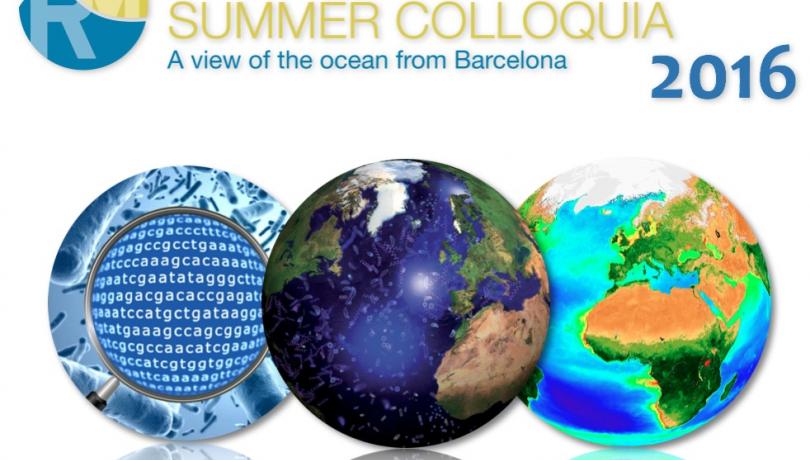Focused on the topic “Microbes in a changing world: diversity and biogeochemistry” ,the fourth edition of Ramon Margalef Summer Colloquia started yesterday, organized by the Institut de Ciències del Mar (ICM) and the Associació Catalana d’Oceanògrafes i Oceanògrafs (ACOIO).
The colloquia consist in a series of annual summer meetings between recent PhDs students and researchers with more experience, celebrated in the ICM in July every year since 2013.

Focused on the topic “Microbes in a changing world: diversity and biogeochemistry” ,the fourth edition of Ramon Margalef Summer Colloquia started yesterday, organized by the Institut de Ciències del Mar (ICM) and the Associació Catalana d’Oceanògrafes i Oceanògrafs (ACOIO).
The colloquia consist in a series of annual summer meetings between recent PhDs students and researchers with more experience, celebrated in the ICM in July every year since 2013.
Its main objective is to promote the exchange of ideas between experienced and young promising researchers on a relevant topic in Marine Ecology from a multidisciplinary perspective. The central topic of the colloquium changes every year. “Physical-Biological ocean interactions”, “A cross-system view of what Ecology can learn from natural and human-induced disturbances”, and “Patterns and processes in boundary marine ecosystems” were the subjects of previous editions.
This year the colloquia will run from July 10th to 15th and will be focused on marine microorganisms. It is coordinated by Josep Maria Gasol and Cèlia Marraé from the Marine Biology and Oceanography department. The participants are 44 students from 17 different countries, who will meet teachers coming from US, Sweden, Austria Saudi Arabia, Belgium, Sweden, France, as well as from various institutions in Spain, Basque country and Catalonia.
“Marine microorganisms are known to be responsible for half of the primary production on the planet, and the 1029 microbial cells in the oceans make more than 95% of the total respiration. The change of perspective has been spectacular and has given birth to the field of Microbial Oceanography with the motto from genomes to biomes to reflect the wide range of scales and methodological approaches currently used” Gasol comments.
Microbial oceanography has become one of the most dynamic fields of research, important journals have dedicated special issues for the discipline and private foundations have created major programs to fund this research. “As recognized by Margalef, and even with the technical limitations he had, microbial species dominate numerically the oceans, yet their population dynamics, metabolic complexity, synergistic interactions, and interactions with macroorganisms remain largely uncharted” affirms Marrasé.
A full understanding of life in the ocean requires the knowledge of marine microbial taxa, their genome sequences, their metabolic responses to physical and chemical changes and their influence in the global biogeochemical cycles. The microbial ecology researchers at the ICM are experts in these and have been deeply involved in the Tara Oceans and Malaspina expeditions.
This year edition has received funds from the AGBAR Foundation, the Gordon and Betty Moore Foundation, the International Society for Microbial Ecology, the Campus de Excelencia Internacional en Ciencias del Mar and the Scientific Committee on Oceanic Research (SCOR).
Complete program in the official web: http://www.acoio.org/margalef-summer-colloquia/